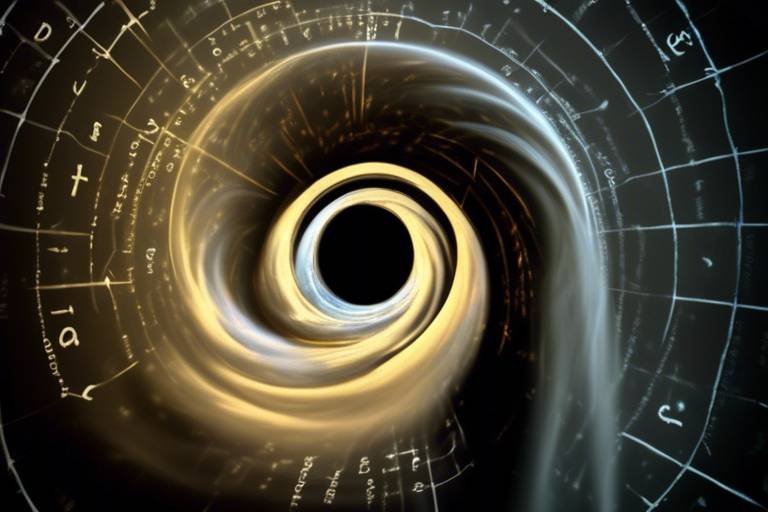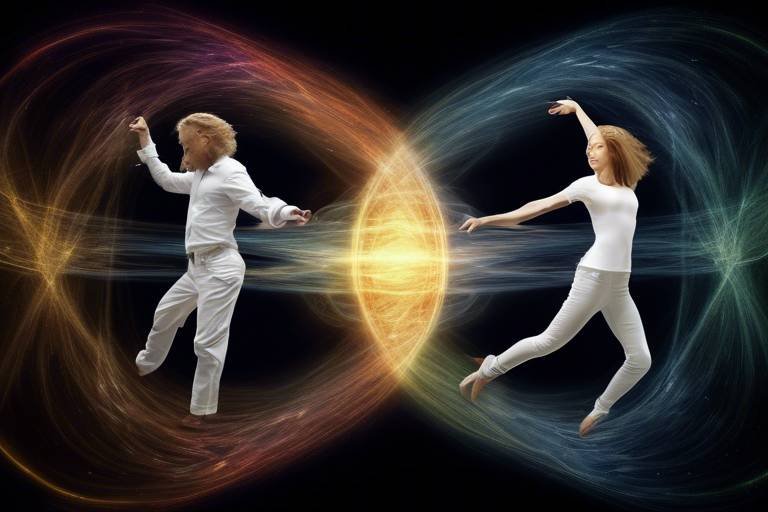Is the Universe Conscious? Panpsychism and Quantum Physics
The question of whether the universe is conscious is a profound one that has intrigued thinkers for centuries. Imagine for a moment that everything around us—stars, planets, even the air we breathe—might possess some form of awareness. This concept, known as panpsychism, challenges our traditional understanding of consciousness as something unique to humans or perhaps higher animals. Instead, it suggests that consciousness could be a fundamental aspect of all matter. In this article, we will explore the fascinating intersection of panpsychism and quantum physics, diving deep into the implications of a conscious universe and what it could mean for our understanding of reality.
To grasp the idea of a conscious universe, we must first understand panpsychism. This philosophical view posits that consciousness is not merely a byproduct of complex biological processes but a fundamental feature of the universe itself. Think of it as a thread woven into the fabric of reality, connecting everything from the smallest particle to the largest galaxy. Historically, panpsychism can be traced back to ancient philosophies, with notable proponents including Plato and Spinoza, who viewed consciousness as an intrinsic quality of all things.
In contemporary discussions, thinkers like David Chalmers and Galen Strawson have revitalized interest in panpsychism, arguing that it offers a plausible solution to the so-called "hard problem of consciousness"—the challenge of explaining how subjective experiences arise from physical processes. By suggesting that consciousness is a universal trait, panpsychism invites us to reconsider what it means to be conscious and challenges the notion that awareness is a privilege of complex organisms.
Now, let’s shift gears and dive into the world of quantum physics. At first glance, quantum mechanics might seem like a realm far removed from the philosophical musings of panpsychism. However, the two fields intersect in fascinating ways. Quantum physics introduces concepts that defy our classical understanding of reality, such as superposition and entanglement. These principles suggest that particles can exist in multiple states simultaneously and can be interconnected regardless of the distance separating them. This raises intriguing questions about the nature of consciousness and its relationship to the universe.
Could it be that the interconnectedness implied by quantum entanglement reflects a deeper, collective consciousness within the universe? Perhaps the universe itself is not just a passive backdrop for our existence but an active participant in the dance of consciousness. The implications of this perspective are staggering, as they challenge our traditional scientific paradigms and encourage us to rethink our approach to studying consciousness.
Quantum entanglement is one of the most mind-bending phenomena in physics. When two particles become entangled, the state of one instantly influences the state of the other, regardless of the distance between them. This phenomenon could imply a form of collective consciousness that transcends individual awareness. Imagine a vast web of consciousness, where every particle is interconnected, sharing information and experiences in ways we are only beginning to comprehend.
This perspective invites us to consider whether our individual consciousness is merely a fragment of a larger, universal awareness. If the universe is indeed conscious, what does that mean for our understanding of free will, identity, and existence itself? Could it be that our thoughts and actions are part of a grander cosmic narrative, woven into the very fabric of reality?
The intersection of quantum physics and consciousness raises profound questions about the nature of scientific inquiry itself. Traditional scientific methods often rely on objective observations and measurable phenomena. However, when we introduce consciousness into the equation, we must grapple with the subjective nature of experience. How can we study something as elusive as consciousness using conventional scientific tools?
As we explore these ideas, we may find ourselves needing to adopt new methodologies—perhaps integrating insights from philosophy, psychology, and even spirituality. This shift could lead to a more holistic understanding of consciousness, one that embraces the complexities of both the quantum world and our subjective experiences.
Despite the tantalizing possibilities, it’s essential to consider the critiques of linking quantum physics with consciousness. Skeptics argue that the leap from quantum mechanics to consciousness is unwarranted, pointing out that quantum phenomena occur at scales far removed from our everyday experiences. They caution against conflating the two realms without substantial evidence.
Critics also highlight that while quantum mechanics challenges our classical intuitions, it does not necessarily imply that consciousness pervades the universe. This skepticism is vital for maintaining a rigorous scientific discourse, reminding us that while the idea of a conscious universe is captivating, it requires careful examination and empirical validation.
As we delve deeper into the nature of consciousness, we encounter various philosophical perspectives. Dualism, for instance, posits that mind and body are distinct entities, while physicalism argues that everything, including consciousness, can be explained through physical processes. Panpsychism, with its unique stance, suggests a middle ground—consciousness is a fundamental aspect of all matter, bridging the gap between the mental and the physical.
This philosophical landscape invites us to reflect on our own beliefs about consciousness. Are we merely biological machines, or is there something more profound at play? Engaging with these questions can enrich our understanding of ourselves and our place in the universe.
While panpsychism primarily resides in the realm of philosophy, some scientific findings hint at a deeper connection between consciousness and the universe. Research in fields like neuroscience and cosmology has begun to explore these connections, suggesting that consciousness may not be as isolated as we once thought.
Neuroscience has made significant strides in unraveling the mysteries of human consciousness. Studies examining brain activity, perception, and awareness have led to insights that could inform our understanding of consciousness on a universal scale. For example, the discovery of mirror neurons suggests that our brains are wired for empathy and connection, hinting at a shared consciousness among individuals.
Cosmology, the study of the universe's origins and structure, also intersects intriguingly with consciousness. Theories about the universe's creation and evolution raise questions about the role of consciousness in shaping reality. Could consciousness be a driving force behind the cosmos, influencing its development and structure? As we explore these ideas, we may find ourselves standing on the precipice of a new understanding of existence itself.
- What is panpsychism? - Panpsychism is the philosophical view that consciousness is a fundamental feature of all matter, suggesting that everything in the universe possesses some form of awareness.
- How does quantum physics relate to consciousness? - Quantum physics introduces concepts like entanglement and superposition, which challenge our understanding of reality and suggest interconnectedness that could imply a form of collective consciousness.
- Are there scientific studies supporting panpsychism? - While panpsychism is primarily a philosophical concept, some scientific research in neuroscience and cosmology suggests a deeper connection between consciousness and the universe.
- What are the critiques of linking quantum physics and consciousness? - Critics argue that the leap from quantum mechanics to consciousness is unwarranted and caution against conflating the two without substantial evidence.

Understanding Panpsychism
Panpsychism is a captivating philosophical theory that suggests consciousness is not just a trait of humans or higher animals but a fundamental aspect of all matter in the universe. Imagine if everything around us—rocks, trees, water—possessed a form of awareness, however rudimentary. This idea can be both exhilarating and perplexing, challenging our conventional views of consciousness as something unique to sentient beings. Historically, the roots of panpsychism can be traced back to ancient philosophical traditions, where thinkers like Plato and Aristotle pondered the nature of consciousness and its connection to the material world.
In the modern era, panpsychism has been championed by various philosophers and scientists, including the likes of Alfred North Whitehead and David Chalmers. They argue that if consciousness is a fundamental feature of the universe, it could bridge the gap between physical and mental phenomena. This perspective stands in stark contrast to traditional views that often regard consciousness as an emergent property of complex biological systems. The implications are profound: if consciousness is everywhere, then our understanding of reality itself must expand.
To further grasp the concept, consider the following key points:
- Consciousness as Fundamental: Panpsychists argue that consciousness is not an afterthought of evolution but a basic quality of existence.
- Interconnectedness: This theory posits that all entities, regardless of their complexity, share a form of consciousness, albeit in varying degrees.
- Challenging Dualism: By suggesting that consciousness is inherent in all matter, panpsychism challenges the dualistic view that separates the mind from the body.
As we delve deeper into this fascinating theory, it becomes clear that panpsychism invites us to reconsider our relationship with the universe. It encourages us to think of ourselves as part of a vast, interconnected web of consciousness, where even the smallest particles might possess a flicker of awareness. This perspective not only expands our understanding of consciousness but also raises significant questions about the nature of existence itself. What does it mean for us to be conscious beings in a universe that may also be conscious? This line of inquiry leads us into the realm of quantum physics, where the mysteries of reality become even more entangled.
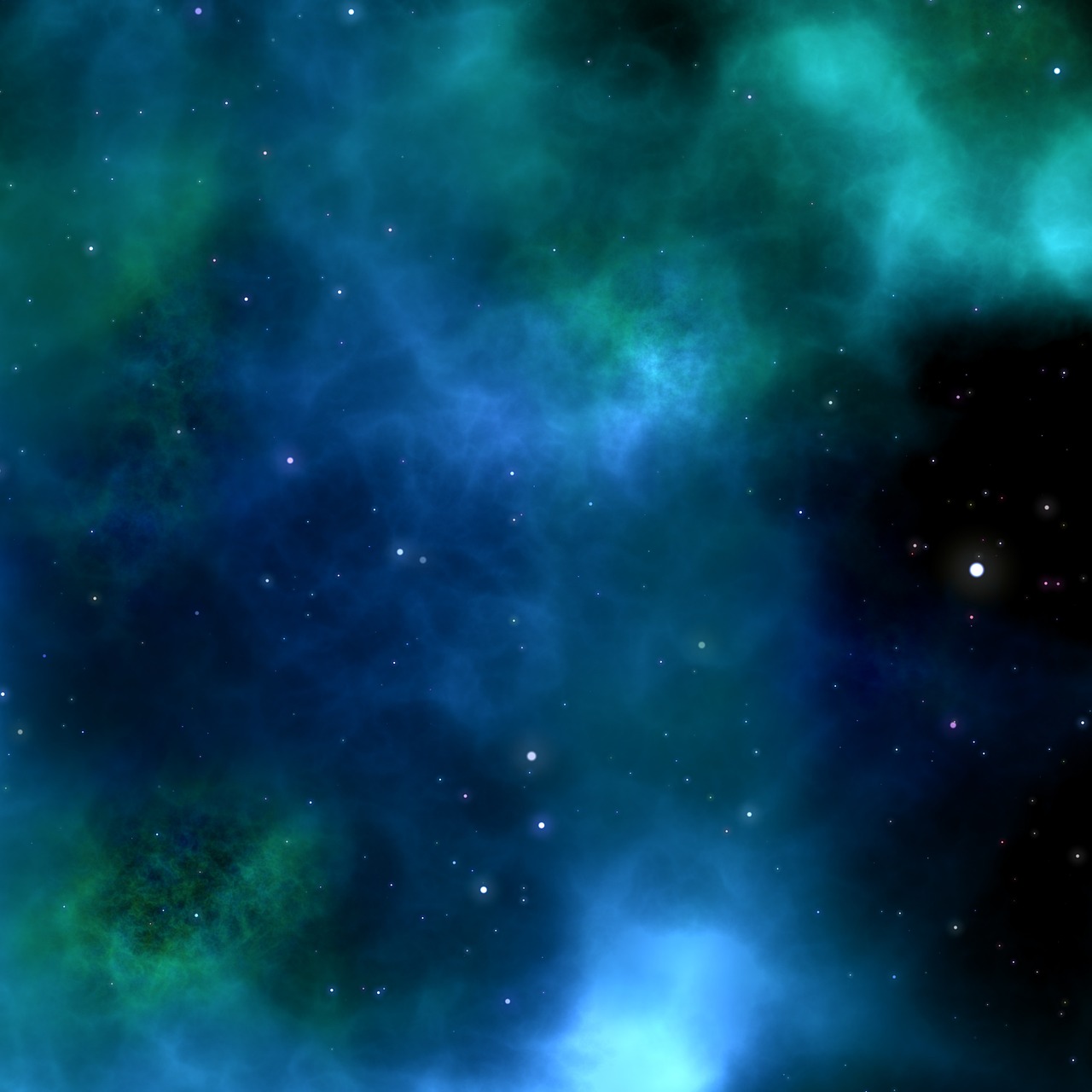
The Role of Quantum Physics
Quantum physics is like the wild child of the scientific family, constantly challenging our perceptions of reality and pushing the boundaries of what we think we know. At its core, quantum physics examines the behavior of the smallest particles in the universe, revealing a world that is bizarre, unpredictable, and downright fascinating. But how does this relate to the concept of panpsychism, which posits that consciousness is not just a human trait, but a fundamental aspect of all matter? Well, buckle up, because the intersection of these two ideas opens up a realm of possibilities that could reshape our understanding of existence itself.
One of the most captivating elements of quantum physics is the phenomenon of quantum entanglement. This occurs when two particles become intertwined, such that the state of one particle is directly linked to the state of another, no matter how far apart they are. Imagine having a pair of magical dice: if you roll one and it lands on six, the other one—regardless of whether it's in the same room or across the galaxy—will also show six. This strange connection suggests that our universe is not as isolated as we once thought. Instead, it hints at a deeper, interconnected fabric of reality, where everything is linked in a cosmic dance. Could this entangled state imply a form of collective consciousness? It’s a tantalizing thought that invites us to reconsider the nature of awareness on a universal scale.
Moreover, the implications of quantum physics extend beyond mere curiosity; they challenge our traditional scientific paradigms. For centuries, science has favored a reductionist approach, analyzing the universe by breaking it down into its smallest components. However, quantum mechanics suggests that this reductionist view might be incomplete. Instead of viewing consciousness as something that emerges solely from complex biological systems, quantum physics encourages us to consider that consciousness might be an intrinsic property of the universe itself. This has profound implications for how we conduct scientific inquiry. Are we merely observers of a pre-existing reality, or do we play an active role in shaping it through our consciousness? The answers to these questions could revolutionize not just science, but our entire worldview.
In summary, the role of quantum physics in the discussion of consciousness and panpsychism is both profound and perplexing. It invites us to explore the idea that consciousness could be a fundamental aspect of the universe, rather than an isolated phenomenon. As we delve deeper into the mysteries of quantum mechanics, we may find that the universe is not just a collection of particles, but a living tapestry of interconnected consciousness. The journey into this uncharted territory is just beginning, and who knows what revelations lie ahead?

Quantum Entanglement and Consciousness
Imagine a world where everything is intertwined, where the very fabric of reality is woven together in a complex tapestry of connections. This is the essence of quantum entanglement, a phenomenon where particles become linked in such a way that the state of one instantly influences the state of another, regardless of the distance separating them. Now, what if this idea extends beyond particles and into the realm of consciousness? Could it be that our minds are not isolated entities but rather part of a larger, interconnected consciousness that permeates the universe?
To understand this intriguing possibility, we first need to grasp the concept of quantum entanglement itself. When two particles become entangled, their properties become correlated. If you measure one particle and find it in a particular state, the other particle, no matter how far away it is, will instantaneously be found in a corresponding state. This bizarre connection defies our traditional understanding of space and time, leading some to speculate that consciousness may also operate in a non-local manner.
One of the most fascinating implications of quantum entanglement is the idea of a collective consciousness. If particles can communicate instantaneously across vast distances, could it be that our thoughts and feelings are similarly interconnected? Imagine a vast web of consciousness, where every mind contributes to a greater understanding of existence, much like how individual threads contribute to a rich tapestry. This perspective challenges the notion of individuality and suggests that we may all play a part in a grander scheme.
However, diving deeper into this concept raises some questions:
- Is consciousness merely an emergent property of complex systems? Some argue that consciousness arises from the intricate interactions within our brains, much like how a symphony emerges from the harmonious cooperation of individual instruments.
- Could quantum mechanics provide a framework for understanding consciousness? If consciousness is indeed entangled, could quantum mechanics offer insights into how our minds interact with the universe?
- What does this mean for our understanding of free will? If our thoughts are part of a larger interconnected system, do we truly possess free will, or are our decisions influenced by this cosmic web?
These questions lead us to consider the implications of quantum entanglement on scientific inquiry. Traditional scientific paradigms often emphasize isolation and independence, but the interconnectedness suggested by quantum mechanics invites us to rethink our approach. Are we merely observers of the universe, or are we active participants in a shared consciousness that shapes reality?
While the idea of a universal consciousness may seem far-fetched, it opens up exciting new avenues for exploration. It encourages scientists and philosophers alike to investigate the boundaries between mind and matter, urging us to look beyond the surface and delve into the depths of existence. As we continue to unravel the mysteries of quantum mechanics, we may find that the universe is not just a collection of isolated particles, but a vibrant, living entity pulsating with consciousness.

Implications for Scientific Inquiry
The intersection of quantum physics and consciousness invites a profound re-evaluation of how we approach scientific inquiry. Traditionally, science has relied on a clear separation between the observer and the observed, a principle that underpins much of classical physics. However, when we entertain the idea that the universe itself might possess some form of consciousness, the lines begin to blur. This notion challenges the very foundation of scientific methodology, prompting us to ask: What if consciousness is not merely a byproduct of complex biological processes, but a fundamental aspect of reality?
One of the most significant implications is the need for a more holistic approach to understanding consciousness. Instead of viewing it as a phenomenon that can be isolated and studied in controlled environments, we may need to consider the interconnectedness of all things. This perspective aligns with the principles of quantum entanglement, where particles are linked in ways that defy classical explanations. If consciousness is indeed a universal trait, then our scientific inquiries must account for this interconnectedness. This could lead to the development of new methodologies that embrace complexity and interdependence, rather than reductionism.
Moreover, the implications extend beyond methodology to the very goals of scientific inquiry. If we accept that consciousness may be a fundamental property of the universe, our research objectives could shift from merely understanding the mechanics of consciousness to exploring its role in shaping reality itself. This could mean investigating questions like:
- How does consciousness influence the behavior of particles at a quantum level?
- What role does collective consciousness play in the evolution of the universe?
- Can scientific instruments be designed to measure consciousness in a meaningful way?
Additionally, the integration of consciousness into scientific inquiry could lead to interdisciplinary collaborations that bridge gaps between physics, philosophy, and neuroscience. For instance, physicists might work alongside philosophers to develop frameworks that better account for the subjective experience of consciousness. This collaboration could yield innovative theories that challenge existing paradigms and push the boundaries of our understanding.
However, embracing these implications also raises important questions about the nature of scientific rigor. Critics may argue that introducing consciousness into scientific discourse could lead to subjective interpretations that undermine the objectivity that science strives for. Thus, a careful balance must be struck between exploring these new ideas and maintaining the empirical standards that define scientific inquiry.
In conclusion, the implications of linking consciousness with quantum physics are vast and multifaceted. They compel us to rethink not just how we study consciousness, but also what it means to be conscious in a universe that may be alive with awareness. As we navigate these uncharted waters, the journey itself could redefine our understanding of existence, pushing us toward a more integrated view of reality.
- What is panpsychism? Panpsychism is the philosophical view that consciousness is a fundamental feature of all matter, suggesting that everything in the universe has some degree of awareness.
- How does quantum physics relate to consciousness? Quantum physics introduces concepts like entanglement and superposition, which may imply that consciousness is interconnected in ways that challenge traditional views of separation between observer and observed.
- Can consciousness be scientifically measured? While measuring consciousness remains a complex challenge, advancements in neuroscience and quantum physics may pave the way for new methodologies to explore this phenomenon.
- What are the critiques of linking consciousness with quantum physics? Critics argue that such connections may lead to speculative theories lacking empirical support, potentially undermining the rigor of scientific inquiry.

Critiques of Quantum Consciousness Theories
The intersection of quantum physics and consciousness has sparked an intriguing debate, but it is not without its skeptics. Critics argue that linking quantum mechanics with consciousness is a leap too far, often citing a lack of empirical evidence to support such claims. One of the primary critiques centers around the idea that quantum processes occur at a level that is fundamentally different from the biological processes that govern consciousness. While quantum phenomena are often described in terms of probabilities and uncertainties, consciousness is generally understood as a more deterministic process, leading to the question: can we truly reconcile these two realms?
Moreover, many critics highlight the risk of overextending quantum mechanics into the realm of the mind. The famous physicist Richard Feynman once remarked, "If you think you understand quantum mechanics, you don’t understand quantum mechanics." This sentiment captures the essence of the skepticism surrounding quantum consciousness theories. It suggests that applying quantum principles to consciousness might be a misinterpretation of the science itself, akin to trying to use the rules of chess to explain the game of poker—both are games, but their underlying mechanics are vastly different.
Another significant critique is the issue of testability. Scientific theories must be falsifiable; they need to be framed in such a way that they can be tested and potentially disproven. Critics argue that many quantum consciousness theories lack this crucial aspect. If consciousness is intrinsically tied to quantum events, how can we create experiments that isolate these events in a way that would allow us to measure their impact on conscious experience? The absence of a clear experimental framework leaves many in the scientific community unconvinced.
Furthermore, the philosophical implications of claiming that the universe is conscious raise profound questions about free will and determinism. If consciousness is a fundamental aspect of all matter, as panpsychism suggests, does that mean everything around us has a form of awareness? This perspective could lead to a slippery slope of attributing consciousness to inanimate objects, which many philosophers and scientists find problematic. The implications for ethics, morality, and our understanding of life itself are staggering and warrant careful consideration.
In summary, while the idea of quantum consciousness is fascinating and thought-provoking, it invites a plethora of critiques that challenge its validity. From the concerns about empirical support and testability to the philosophical ramifications of universal consciousness, these critiques serve as essential touchpoints in the ongoing dialogue about the nature of reality and our place within it.
- What is panpsychism? Panpsychism is the philosophical view that consciousness is a fundamental feature of all matter, suggesting that everything in the universe possesses some form of consciousness.
- How does quantum physics relate to consciousness? Quantum physics introduces concepts like entanglement and superposition, which some theorists believe may provide insights into the nature of consciousness and its relationship with the universe.
- What are the main critiques of quantum consciousness theories? Critics argue that these theories lack empirical evidence, struggle with testability, and raise complex philosophical questions about the nature of consciousness and free will.
- Can consciousness be measured scientifically? While neuroscience has made strides in understanding human consciousness, measuring consciousness at a quantum level presents significant challenges and remains largely theoretical.
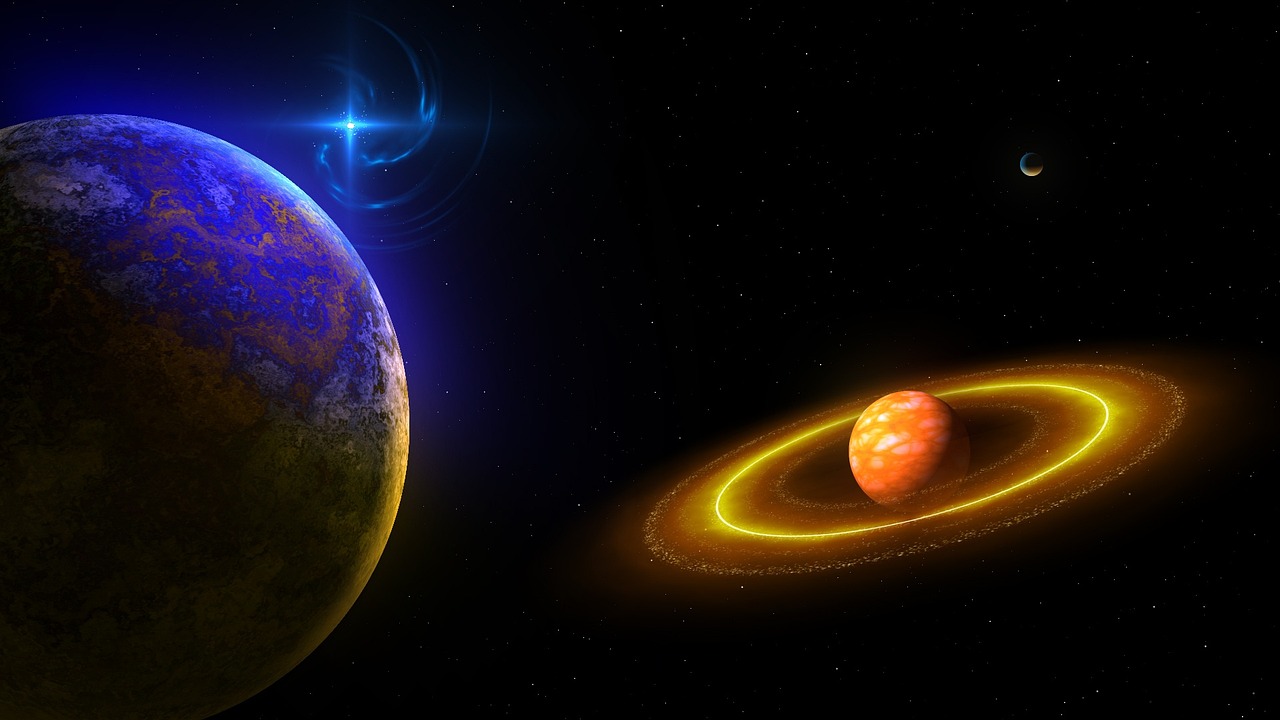
Philosophical Perspectives on Consciousness
The exploration of consciousness isn't just a scientific endeavor; it’s a deeply philosophical one as well. Throughout history, thinkers have wrestled with the question: What is consciousness? Is it merely a byproduct of biological processes, or does it possess a more profound significance? One of the most compelling frameworks in this debate is dualism, famously articulated by René Descartes. Dualism posits that the mind and body are distinct entities, suggesting that consciousness is non-physical and exists independently of the brain. This perspective raises intriguing questions about the nature of existence and the relationship between our mental experiences and the physical world around us.
On the other hand, we have physicalism, which argues that everything about consciousness can be explained through physical processes. This view aligns closely with modern neuroscience, asserting that consciousness arises from complex interactions among neurons in the brain. However, physicalism struggles to account for the subjective experience of consciousness—often referred to as the ‘hard problem’ of consciousness. How do we transition from the firing of neurons to the rich tapestry of thoughts, feelings, and experiences that define our lives?
Then we have panpsychism, a view that has gained traction in recent years. It suggests that consciousness is a fundamental feature of all matter, not just human beings. Imagine a universe where everything—rocks, trees, and even atoms—possesses some degree of consciousness. This perspective challenges the traditional notion that consciousness is exclusive to complex organisms. It opens up a fascinating dialogue about the interconnectedness of all things in the universe.
To better illustrate these philosophical perspectives, consider the following table:
| Philosophical Perspective | Key Characteristics | Notable Thinkers |
|---|---|---|
| Dualism | Minds and bodies are distinct; consciousness exists independently. | René Descartes, Plato |
| Physicalism | Consciousness arises from physical processes; everything can be explained scientifically. | Daniel Dennett, Patricia Churchland |
| Panpsychism | Consciousness is a fundamental aspect of all matter. | Galen Strawson, Philip Goff |
These philosophical frameworks each offer unique insights into the nature of consciousness, yet they also pose significant challenges. For instance, if consciousness is indeed a feature of all matter, how do we measure it? How do we ascertain the level of consciousness in non-human entities? These questions invite us to rethink our understanding of the universe and our place within it.
In conclusion, the philosophical perspectives on consciousness not only enrich our understanding of this enigmatic phenomenon but also encourage us to explore deeper implications about existence itself. Are we merely biological machines, or do we possess a spark of something greater? As we delve into these questions, we may find that the answers could reshape our understanding of reality as we know it.
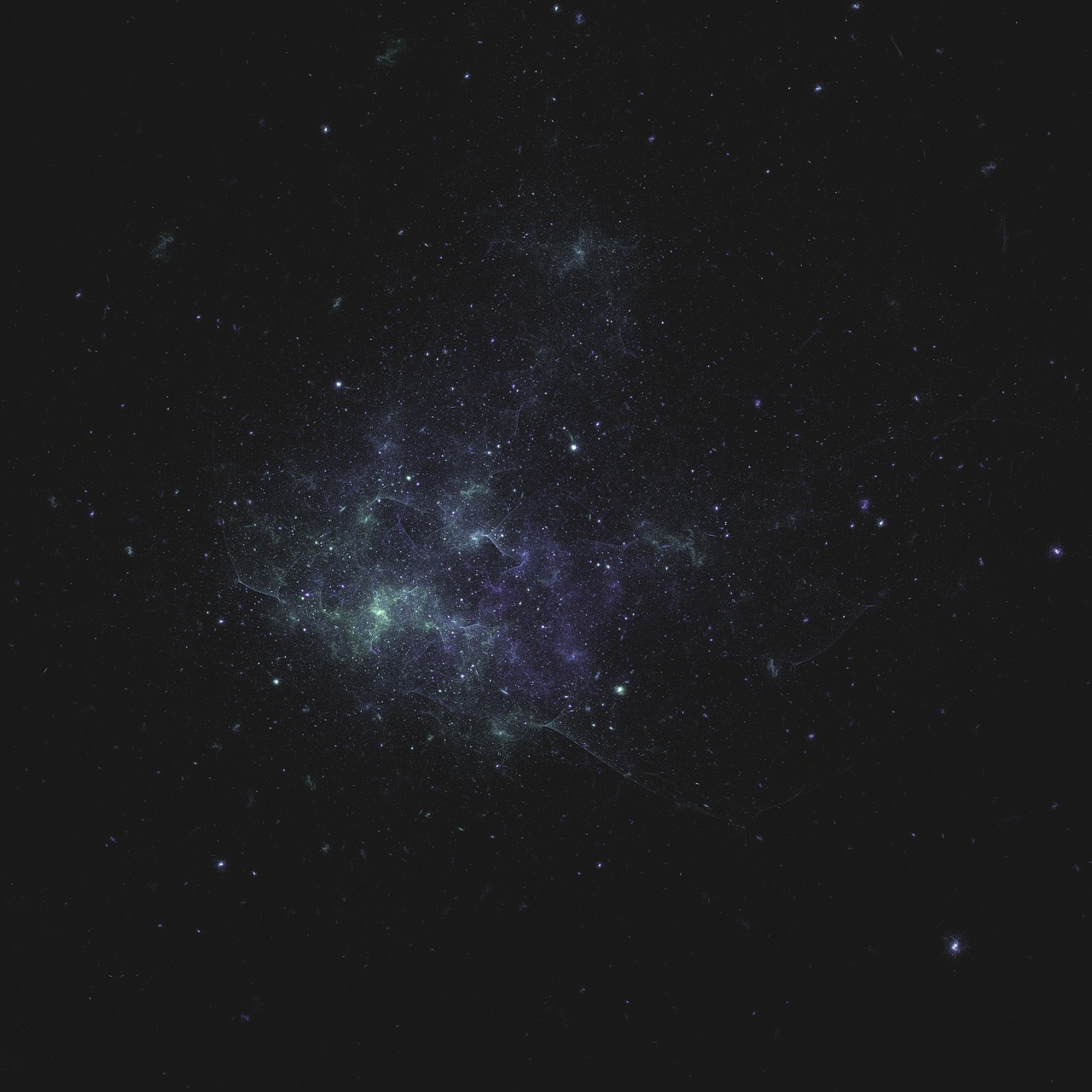
Scientific Evidence for Panpsychism
While panpsychism may seem like a philosophical abstraction, recent scientific findings have begun to suggest a deeper connection between consciousness and the universe. This idea posits that consciousness isn't merely a byproduct of complex brains but rather a fundamental aspect of all matter. Imagine for a moment that every particle in the universe has a whisper of awareness—this is the essence of panpsychism. But what does science say about this intriguing notion?
One of the most compelling pieces of scientific evidence that aligns with panpsychism comes from the field of quantum physics. Quantum mechanics reveals a reality that is far stranger than our everyday experiences. For instance, the phenomenon of quantum entanglement shows that particles can become interconnected, sharing information instantaneously, regardless of the distance separating them. This interconnection hints at a form of collective awareness. If particles can influence each other across vast distances, could it be that they possess a rudimentary form of consciousness that allows them to communicate in ways we are only beginning to understand?
Moreover, researchers in the field of neuroscience have made significant strides in understanding how consciousness arises in complex organisms. Studies on brain activity and cognitive functions have revealed that consciousness might not be localized to specific areas of the brain but could be a more distributed process. This idea aligns with panpsychism, suggesting that consciousness could be a property inherent in all matter, not just in advanced life forms. The complexity of neural networks might mirror the interconnectedness of particles at the quantum level.
To further explore the scientific underpinnings of panpsychism, let's consider some recent studies that provide insight into this fascinating concept:
| Study | Findings | Implications |
|---|---|---|
| Quantum Entanglement Experiments | Particles remain interconnected regardless of distance. | Supports the idea of a universal consciousness. |
| Neuroscience Research | Consciousness may arise from distributed brain activity. | Suggests consciousness could be a fundamental property of matter. |
| Cosmological Studies | Investigates the origins of the universe and its structure. | May reveal connections between consciousness and the cosmos. |
Additionally, cosmology, the study of the universe's origins and structure, offers intriguing possibilities that intersect with panpsychism. Theories about the universe's birth, such as the Big Bang, raise questions about the nature of consciousness at a cosmic level. Could the very fabric of the universe be woven with threads of consciousness? These considerations challenge our traditional views and invite us to reimagine the universe not just as a collection of physical entities, but as a living, breathing entity with its own form of awareness.
In conclusion, while panpsychism remains a philosophical concept, the emerging scientific evidence suggests that consciousness may be more universal than previously thought. As we delve deeper into the mysteries of quantum physics, neuroscience, and cosmology, we find ourselves standing on the precipice of a new understanding of reality—one where consciousness is woven into the very fabric of existence. Could it be that we are part of a grand tapestry of awareness, where every atom contributes to the collective consciousness of the universe? The journey to uncover these truths is just beginning, and the implications for our understanding of life, the universe, and everything in between are nothing short of astonishing.
- What is panpsychism? - Panpsychism is the philosophical view that consciousness is a fundamental feature of all matter, not just human beings.
- How does quantum physics relate to consciousness? - Quantum physics introduces concepts like entanglement, which suggest interconnectedness that may imply a form of collective consciousness.
- Is there scientific evidence supporting panpsychism? - Yes, recent findings in quantum physics, neuroscience, and cosmology hint at a deeper connection between consciousness and the universe.
- What are the implications of panpsychism? - If panpsychism is true, it could revolutionize our understanding of consciousness and the nature of reality itself.

Neuroscience and Consciousness
Neuroscience has made remarkable strides in unraveling the complexities of human consciousness, a journey that has both fascinated and perplexed scientists and philosophers alike. At its core, consciousness is often viewed as a subjective experience, a tapestry woven from thoughts, emotions, and sensory perceptions. But what if this intricate web of experiences extends beyond the human mind? What if consciousness is not just a byproduct of neural activity but a fundamental aspect of the universe itself?
To understand the relationship between neuroscience and consciousness, we must first delve into how the brain operates. The brain is an intricate network of neurons, each communicating through electrical and chemical signals. This network forms a vast and dynamic system that generates thoughts, feelings, and perceptions. However, the question remains: how does this complex system give rise to the rich tapestry of conscious experience? One prevailing theory suggests that consciousness emerges from the integrated activity of neural networks, a phenomenon known as integrated information theory (IIT). According to IIT, consciousness corresponds to the degree of information integration within a system. In simpler terms, the more interconnected and complex a system is, the richer its conscious experience.
Interestingly, some neuroscientific findings hint at a deeper connection between consciousness and the fabric of reality. For instance, studies on brain injuries and disorders have shown that alterations in neural activity can drastically affect consciousness. Patients with locked-in syndrome, for example, are fully conscious but unable to move or communicate. This raises profound questions: if consciousness can exist independently of physical expression, could it be possible that consciousness itself is a fundamental property of the universe, much like gravity or electromagnetism?
Moreover, the phenomenon of neural correlates of consciousness (NCC) has been a major focus in neuroscience. Researchers aim to identify specific brain regions and processes that correlate with conscious experiences. While progress has been made, the NCC remains elusive, suggesting that our understanding of consciousness is still in its infancy. As we probe deeper into the neural substrates of consciousness, we may find that the boundaries between human awareness and a universal consciousness are more porous than we once thought.
Furthermore, recent advancements in neuroimaging techniques, such as fMRI and EEG, have allowed scientists to visualize brain activity in real-time. These tools have revealed fascinating insights into how different states of consciousness, such as dreaming or meditative states, activate distinct brain patterns. For example, during deep meditation, certain areas of the brain associated with self-awareness and emotional regulation show remarkable changes. This leads us to ponder: if altered states of consciousness can be induced through practices like meditation, could it be that these practices enable us to tap into a broader, universal consciousness?
In light of these explorations, it’s essential to consider the implications of neuroscience on our understanding of consciousness. As we uncover the intricate workings of the brain, we may also be peeling back the layers of a much larger cosmic mystery. The notion that consciousness extends beyond the individual and is interwoven with the universe invites a profound shift in our perspective. It challenges the traditional view that consciousness is solely an emergent property of biological systems and opens the door to the possibility that consciousness is an intrinsic feature of reality itself.
As we continue to explore the intersections of neuroscience and consciousness, the quest for understanding may not only reshape our scientific paradigms but also our philosophical beliefs about existence. It’s a thrilling journey that beckons us to reconsider what it means to be conscious and how that consciousness relates to the universe at large.
- What is panpsychism? Panpsychism is the philosophical view that consciousness is a fundamental and ubiquitous feature of all matter, suggesting that everything in the universe possesses some form of consciousness.
- How does quantum physics relate to consciousness? Quantum physics introduces concepts like entanglement and superposition, which some theorists believe may support the idea of a collective consciousness shared across the universe.
- What are neural correlates of consciousness? Neural correlates of consciousness (NCC) refer to the specific brain processes and regions that are associated with conscious experiences.
- Can consciousness exist without a physical body? Some theories suggest that consciousness may exist independently of physical form, particularly in cases such as locked-in syndrome, where individuals are conscious but unable to communicate.
- What role does meditation play in understanding consciousness? Meditation can alter brain activity and may provide insights into different states of consciousness, potentially allowing individuals to connect with a broader sense of awareness.

Cosmology and Consciousness
When we dive into the depths of cosmology, we are not just exploring the vastness of space; we are also grappling with profound questions about existence itself. Cosmology, the scientific study of the universe's origins, structure, and evolution, invites us to ponder the very fabric of reality. But how does this connect to consciousness? Well, that’s where things get fascinating. Imagine the universe as a grand tapestry, where each thread represents a different aspect of reality, including consciousness. This perspective opens up a dialogue between cosmology and consciousness that is both exciting and perplexing.
Throughout history, thinkers have pondered whether consciousness plays a role in the cosmos. Some theorists suggest that the universe is not merely a collection of physical matter but a living entity imbued with awareness. This idea, while speculative, aligns with the principles of panpsychism, which posits that consciousness is a fundamental quality of all matter. If we accept that consciousness is woven into the very fabric of the universe, we begin to see a different picture of existence—one where every particle is not just a building block but a participant in a greater conscious experience.
To illustrate this concept, consider the following points:
- The Big Bang: The prevailing cosmological model suggests that the universe began from an incredibly hot and dense point. What if this event was not just a physical explosion but also a moment of cosmic awareness awakening?
- Quantum Fluctuations: At the quantum level, particles pop in and out of existence. Some theorists argue that these fluctuations might be influenced by consciousness, suggesting a deeper connection between mind and matter.
- Cosmic Evolution: As the universe evolves, so too does the potential for consciousness. Could it be that as stars form and galaxies collide, the universe is becoming more aware of itself?
These ideas, while intriguing, are often met with skepticism. Critics argue that attributing consciousness to the universe risks anthropomorphizing something that is fundamentally different from human experience. Yet, the beauty of cosmology lies in its ability to challenge our understanding of reality. Just as we once believed the Earth was the center of the universe, we may need to reconsider our place within it. Are we mere observers, or are we integral components of a conscious cosmos?
Furthermore, the intersection of cosmology and consciousness raises critical questions about the nature of reality itself. If consciousness is indeed a universal feature, what does that imply for our understanding of time and space? Could consciousness transcend the traditional boundaries of these dimensions, suggesting a universe that is not only alive but aware? This perspective invites us to rethink our scientific paradigms and explore new frontiers in our quest for understanding.
As we continue to explore the cosmos, we must remain open to the possibility that consciousness and the universe are intricately linked. The more we learn about the universe's vastness, the more we may discover about ourselves and the nature of existence. In this grand cosmic dance, we are not just passive spectators but active participants in a story that is still unfolding.
Frequently Asked Questions
- What is panpsychism?
Panpsychism is the philosophical view that consciousness is a fundamental aspect of all matter. This means that everything in the universe, from the smallest particles to the largest galaxies, possesses some form of consciousness or awareness. It's a fascinating idea that challenges the traditional belief that consciousness is unique to humans and certain animals.
- How does quantum physics relate to consciousness?
Quantum physics introduces concepts that suggest a deeper relationship between consciousness and the universe. For instance, phenomena like quantum entanglement imply that particles can be interconnected beyond the limits of space and time. Some theorists propose that this interconnectedness could hint at a collective consciousness that pervades the universe, raising profound questions about the nature of reality itself.
- What are the implications of a conscious universe?
If the universe is indeed conscious, it would fundamentally change our understanding of reality. It could suggest that everything is interconnected and that our thoughts and actions have a broader impact than we realize. This perspective may also inspire new scientific inquiries and philosophical debates about the nature of existence and our place within it.
- Are there scientific studies supporting panpsychism?
While panpsychism is primarily a philosophical concept, some scientific research hints at a connection between consciousness and the universe. For example, studies in neuroscience have begun to explore how consciousness arises, and findings in cosmology may suggest that consciousness plays a role in the fabric of reality. However, more research is needed to establish a definitive link.
- What critiques exist against quantum consciousness theories?
Critics of quantum consciousness theories argue that there is insufficient empirical evidence to support the idea that quantum mechanics is related to consciousness. They contend that linking these two fields may lead to misconceptions and that consciousness should be studied through more traditional scientific methods. These critiques are essential to consider in the ongoing debate about the nature of consciousness.
- How do philosophical perspectives influence our understanding of consciousness?
Philosophical perspectives, such as dualism and physicalism, shape how we interpret consciousness. Dualism posits that mind and body are separate, while physicalism argues that consciousness arises from physical processes. Panpsychism fits into this discourse by suggesting that consciousness is a property of all matter, thereby offering a unique viewpoint that bridges these philosophical divides.











